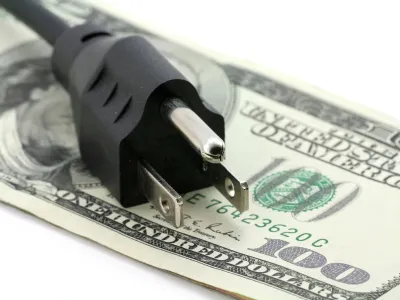Xcel electric customers to see rate refunds

On June 1, 2023 the Minnesota Public Utilities Commission approved a 9.6% rate increase over three years for customers of Xcel Energy's electric utility. This final rate increase is much lower than the 21.2% rate increase Xcel had initially proposed. It is also lower than the 8.92% interim (temporary) rate increase (which equated to a 6.4% bill increase) Xcel customers have been paying since January 2022. That means Xcel electric customers will see their rates decrease slightly moving forward in 2023 and 2024. Xcel will also issue refunds to customers who paid interim rates that were higher than the approved final rates.
One of the most significant and contested issues in the rate case was Xcel's request to increase its authorized return on equity (ROE) from 9.06% to 10.2%. For a regulated utility, an authorized ROE is a key measure of profitability: the higher the authorized ROE, the more profit the utility is able to collect for its shareholders. A higher authorized ROE also means higher rates. If approved, Xcel's proposed ROE increase would have added tens of millions of dollars to Minnesota ratepayers' tab.
CUB, the Minnesota Department of Commerce, and other parties submitted evidence showing Xcel has had no trouble maintaining financial integrity, attracting investment capital, and generating healthy profits for its shareholders at its existing authorized ROE. CUB and other parties—along with hundreds of public commenters—also offered evidence highlighting the challenge everyday Minnesotans would face if Xcel were permitted to significantly increase its rates to support additional profits. On the other hand, Xcel did not offer compelling evidence demonstrating that increasing its authorized ROE so significantly is necessary for the company to continue to achieve healthy financial results.
In balancing this evidence, the Commission ultimately found that Xcel did not meet its burden to prove that increasing its authorized ROE to 10.2% was necessary or reasonable. Instead, the Commission authorized a modest increase to Xcel’s ROE, setting it at 9.25%. This result will allow Xcel to continue to generate a healthy return for its shareholders while saving customers millions of dollars (compared to what they would have paid had Xcel’s request been granted) over the next few years.
Additionally, the Commission capped the amount of money Xcel may collect from its Minnesota customers to help fund the salaries of its executives. Specifically, ratepayers will only be responsible for covering $1.5 million in compensation of the top ten highest-paid employees (an average of $150,000 per executive). Though Xcel retains the right to pay these executives more, shareholders (not ratepayers) will now be responsible for covering more of those costs. The Commission also formally recognized that energy justice principles are relevant to setting rates in the proceeding.
The Commission did not adopt all of CUB's recommendations in this rate case. For example, we were disappointed that the Commission didn’t agree with our arguments that Xcel should share the risk of fuel cost increases – a risk currently borne almost entirely by customers. The Commission also did not adopt our recommendations to limit Xcel’s use of bill riders (extra line item charges on customer bills), which we believe make it harder to holistically understand and evaluate the total costs passed through to ratepayers. That being said, on the whole, we believe the outcome of this rate case was fair. While any rate increase is difficult, on ROE, in particular, the Commission fairly balanced competing interests and established an authorized ROE that is well-grounded in the law and facts.
The Commission's written order memorializing its decision will be published later this summer. After the order is published, Xcel will have up to twenty days to file a petition asking the Commission to reconsider its decision. We expect Xcel to make such a request. CUB will be prepared to respond in order to continue to advocate for the interests of Minnesota's residential consumers.